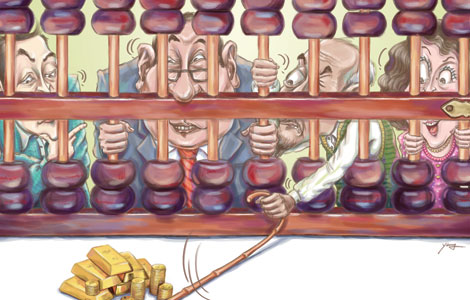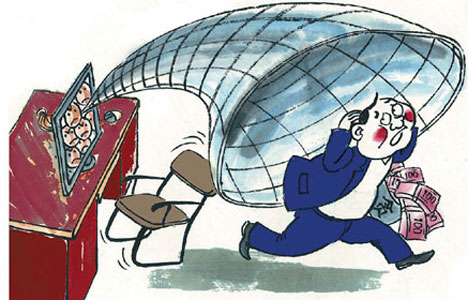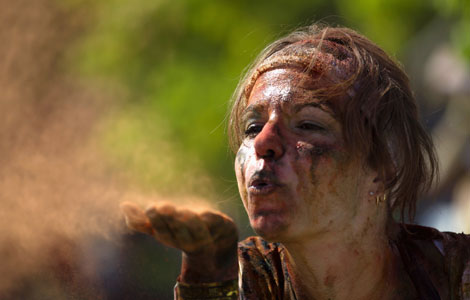From the Chinese Press
Updated: 2013-05-21 08:18
(China Daily)
|
|||||||||||
Jackie Chan is not wrong
Speaking to China Central Television recently, Jackie Chan said he would go ahead with his plan to donate four old buildings purchased from Anhui province to a Singapore university. "I have done nothing to taint my country. I do not pursue fame and wealth as I already have them," Chan told CCTV. Chan bought the buildings two decades ago because he realized their historical and aesthetic value. That he is donating the buildings to a university rather than selling them to make profit is a welcome move, says an article in Yangtze Evening News. Excerpts:
No one knows whether the buildings would have existed until now, let alone being considered heritage structures, had Chan not bought them 20 years ago. In fact, only a handful of people knew about the buildings before Chan announced that he would donate them to a Singapore university.
For many people, such buildings don't have any aesthetic, architectural or even financial value, and it is highly likely that they would have been demolished if these people had had their way. And it is a pity that many of those who oppose (and condemn) Chan's decision to donate the buildings to a Singapore university are involved in activities that damage (and even destroy) the few existing ancient buildings or turn a blind eye to demolition of heritage structures.
It is easy for such people to use the Internet to criticize a celebrity but very difficult to do something concrete to protect old buildings. Therefore, we should try to find out why ancient buildings are sold in the first place and what should be done to protect them, instead of quarreling about whom Chan has donated the buildings to.
Entrance to temples must be free
The abbots of 29 temples in Hunan province have started a campaign to make entry to temples in the province free. The move is praiseworthy, because it is against commercialization of temples, says an article in Guangming Daily. Excerpts:
There are tens of thousands of temples in China, and a person needs to buy a ticket to enter one that is even slightly popular. But making entrance tickets mandatory to visit such places is not conducive to preserving the varied culture of China. Besides, the public doesn't like commercialization of cultural sites, especially temples.
Entrance tickets, however, are only the tip of the iceberg. The root of commercialization of temples lies in travel packages and industrial management offered by profit-minded companies that have no respect for faith or culture.
Businesspeople don't think twice before using temples to make money. Moreover, some local governments have made incomes from temples a part of their regular revenues. Businesspeople and local governments, however, have been making money at the cost of the public.
When it comes to temple-related issues, monks should have the final say, and local governments and businesspeople should be prevented from intervening in sensitive affairs.
Public opinion should be respected while developing public tourist attractions such as famous mountains and ancient temples. Making entrance to 29 temples in Hunan free is a good way to stop commercialization of temples.
(China Daily 05/21/2013 page9)
Today's Top News
China, India can build trust: Premier Li
First-tier cities barely livable, report says
Massive blast claims 13 in Shandong
Fight on drug smuggling for nation
China most financially secure country
Tajikistan president visits China
Voyage to Mars has its skeptics
Premier visits Gandhi's tomb
Hot Topics
Lunar probe , China growth forecasts, Emission rules get tougher, China seen through 'colored lens', International board,
Editor's Picks

|

|

|

|

|

|





